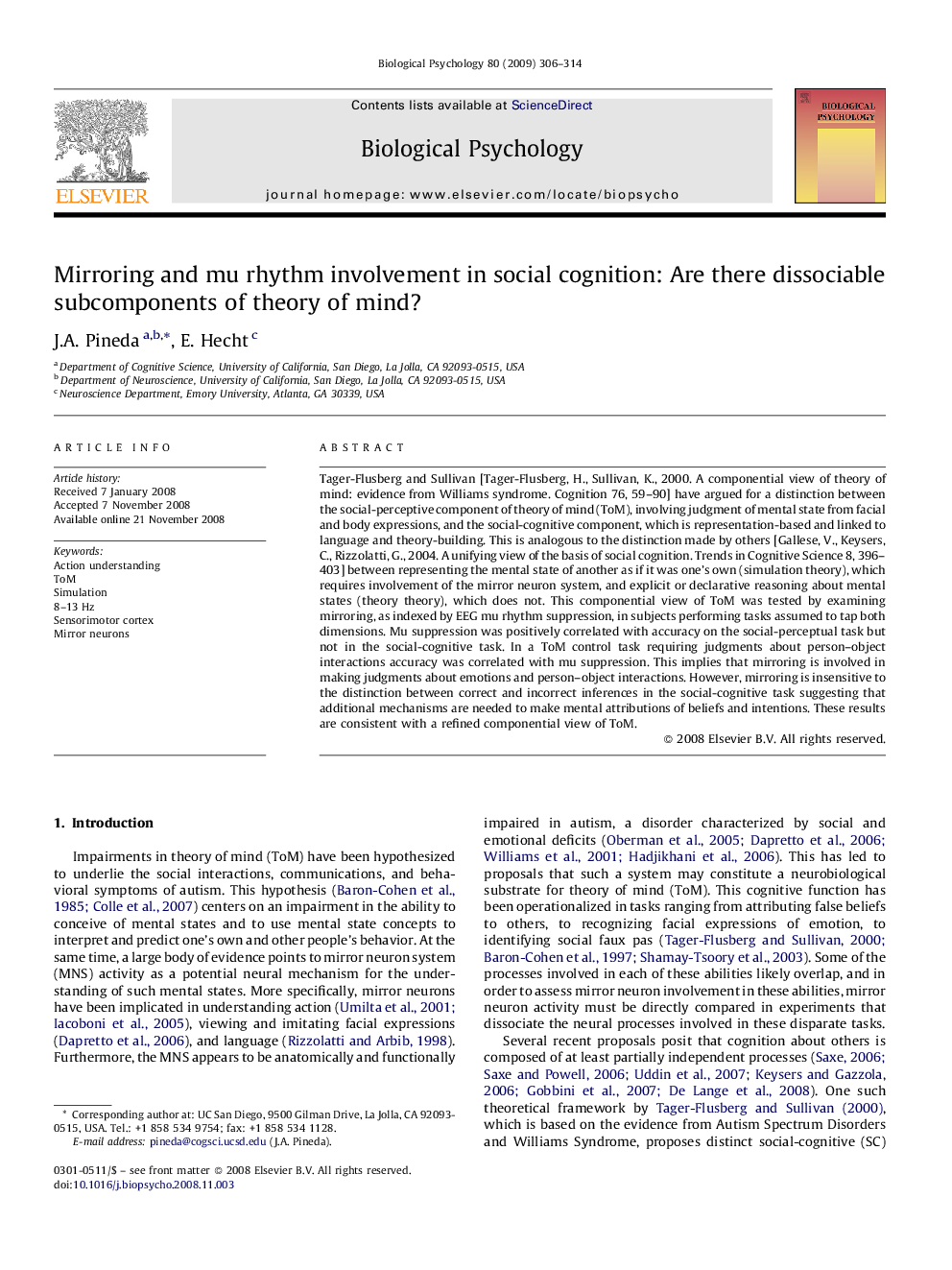| Article ID | Journal | Published Year | Pages | File Type |
|---|---|---|---|---|
| 921382 | Biological Psychology | 2009 | 9 Pages |
Tager-Flusberg and Sullivan [Tager-Flusberg, H., Sullivan, K., 2000. A componential view of theory of mind: evidence from Williams syndrome. Cognition 76, 59–90] have argued for a distinction between the social-perceptive component of theory of mind (ToM), involving judgment of mental state from facial and body expressions, and the social-cognitive component, which is representation-based and linked to language and theory-building. This is analogous to the distinction made by others [Gallese, V., Keysers, C., Rizzolatti, G., 2004. A unifying view of the basis of social cognition. Trends in Cognitive Science 8, 396–403] between representing the mental state of another as if it was one's own (simulation theory), which requires involvement of the mirror neuron system, and explicit or declarative reasoning about mental states (theory theory), which does not. This componential view of ToM was tested by examining mirroring, as indexed by EEG mu rhythm suppression, in subjects performing tasks assumed to tap both dimensions. Mu suppression was positively correlated with accuracy on the social-perceptual task but not in the social-cognitive task. In a ToM control task requiring judgments about person–object interactions accuracy was correlated with mu suppression. This implies that mirroring is involved in making judgments about emotions and person–object interactions. However, mirroring is insensitive to the distinction between correct and incorrect inferences in the social-cognitive task suggesting that additional mechanisms are needed to make mental attributions of beliefs and intentions. These results are consistent with a refined componential view of ToM.
